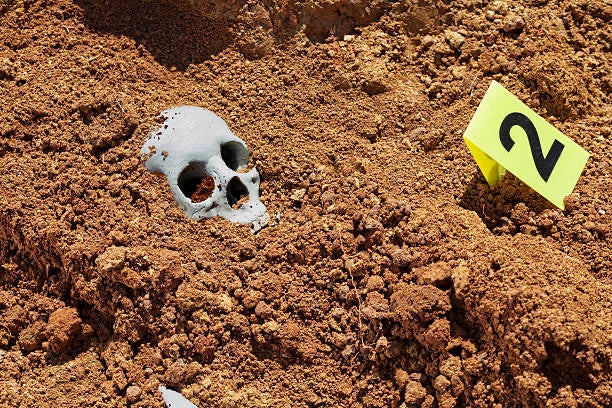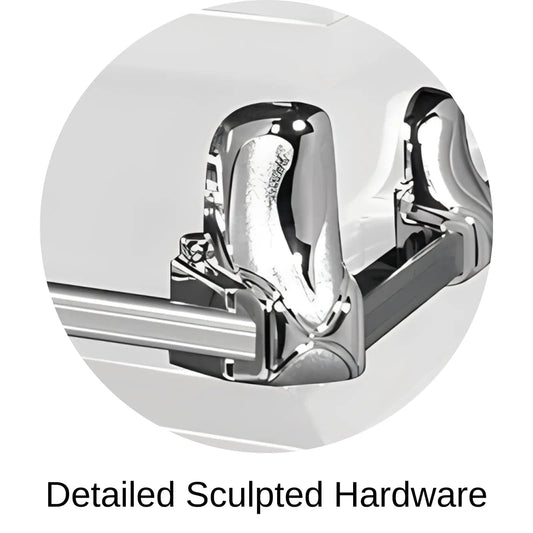Introduction
When considering the purchase of a casket, whether for pre-planning or immediate need, one question that often arises is: How long does it take for a body to decompose in the casket? Understanding this process provides insight into the factors that influence decomposition, offering a comprehensive view of what happens after burial.
The Decomposition Process Inside a Casket
Decomposition is a natural process that begins almost immediately after death. The body's tissues start breaking down due to internal chemical reactions, as well as the activity of bacteria, enzymes, and other microorganisms. However, the environment inside a casket can significantly influence how quickly or slowly this process occurs.
In general, the decomposition process inside a casket is slower compared to bodies that are exposed to the elements. Caskets provide a sealed environment that can delay decomposition by limiting exposure to oxygen, moisture, and bacteria. The materials of the casket, such as wood or metal, also play a role in this process.
Let Titan Concierge help you plan with clarity, care, and confidence.
5 Stages of Decomposition in a Casket
Decomposition in a casket happens in several stages:
-
Fresh Stage: This begins almost immediately after death. Rigor mortis (the stiffening of muscles) sets in, and the body's enzymes start breaking down cells.
-
Bloat Stage: As bacteria in the intestines produce gases, the body starts to bloat. This stage can be somewhat delayed in a casket, particularly if the casket is sealed tightly, which reduces the access of bacteria and oxygen.
-
Active Decay: This stage is marked by the breakdown of tissues into liquid and gas. In a casket, this process is slower due to the restricted environment. The presence of embalming fluids, which are commonly used in modern burials, can further slow down decomposition by preserving tissues temporarily.
-
Advanced Decay: In this stage, most of the body’s soft tissues have decomposed, and only bones, cartilage, and some dried skin remain. In a casket, depending on the conditions, it can take several years to reach this stage.
-
Skeletonization: Eventually, all the soft tissues decompose, leaving only the skeleton. The time it takes to reach this stage can vary widely. In a sealed casket, it may take several decades, particularly if the casket is made of durable materials like metal.
Factors Influencing Decomposition in a Casket
Several factors influence how long it takes for a body to decompose in a casket:
-
Type of Casket: The material and design of the casket can greatly impact the rate of decomposition. Metal caskets, especially those that are sealed, can significantly delay the process by creating a more airtight environment. On the other hand, wooden caskets, which are more porous, may allow for quicker decomposition.
-
Embalming: Embalming is a common practice that involves the use of chemicals to preserve the body. While embalming can slow down decomposition, it does not stop it entirely. Over time, even embalmed bodies will decompose, but the process is much slower, particularly in a sealed casket.
-
Burial Environment: The environment in which the casket is buried also affects decomposition. Cooler temperatures, drier soil, and lower humidity levels can all slow down the process. Conversely, warmer, more humid environments can accelerate decomposition.
-
Soil Conditions: The type of soil around the casket plays a role as well. Sandy soils that drain well tend to slow down decomposition, while clay-rich soils that retain moisture can accelerate it.
How Long Does It Really Take?
So, how long does it take for a body to decompose in the casket? The answer varies. On average, it can take 10 to 15 years for a body to decompose to the point where only the skeleton remains. However, in some cases, it may take several decades, particularly if the body is embalmed and placed in a sealed metal casket.
Casket for Sale: What to Consider
When choosing a casket for sale, it's important to consider how the casket material and design may affect the decomposition process. Metal caskets, for example, offer durability and may extend the time it takes for decomposition to occur. Wooden caskets, while more eco-friendly, might allow for faster decomposition. Additionally, if you are pre-planning a funeral, understanding these factors can help you make an informed decision that aligns with your personal or family preferences.
Frequently Asked Questions (FAQs)
-
How long does it take for an embalmed body to decompose in a casket?
Answer: An embalmed body can take several decades to decompose completely in a sealed metal casket. The embalming process slows down decomposition by preserving tissues.
-
Does a metal casket preserve the body longer than a wooden casket?
Answer: Yes, metal caskets, especially those that are sealed, can preserve the body longer than wooden caskets by creating a more airtight environment, which limits exposure to bacteria and oxygen.
-
Do bodies decompose faster in warmer climates?
Answer: Yes, warmer and more humid climates generally accelerate decomposition. Cooler, drier environments slow down the process.
-
What happens to a body in a sealed casket over time?
Answer: Over time, even in a sealed casket, the body will decompose. The process is just slower, and it can take several decades for the body to fully skeletonize.
-
Can a casket protect against decomposition entirely?
Answer: No, while a casket can slow down decomposition, it cannot stop it entirely. All bodies eventually decompose, regardless of the casket.
-
What is the best type of casket for slowing down decomposition?
Answer: A sealed metal casket combined with embalming is generally the most effective option for slowing down decomposition.
Conclusion
Understanding how long it takes for a body to decompose in the casket is crucial for those making end-of-life arrangements. The type of casket, the embalming process, and environmental factors all play a role in this natural process. Whether you're considering a casket for sale or simply curious about the science behind decomposition, this knowledge can help guide decisions and expectations regarding the final resting place of a loved one.
Need help with funeral planning or navigating options like funeral packages, urn, casket and burial plans? Titan Concierge offers personalized funeral planning services to support families both in immediate need and those looking to pre-plan for the future. From arranging details to offering free expert guidance, we're here to make this process easier. Learn more about our funeral concierge services and how we can help you or your loved ones today.

![Upgrade to Premium Weight [18-gauge steel]](http://titancasket.com/cdn/shop/products/casketthicknesswithnumbers.png?v=1680642906&width=533)









